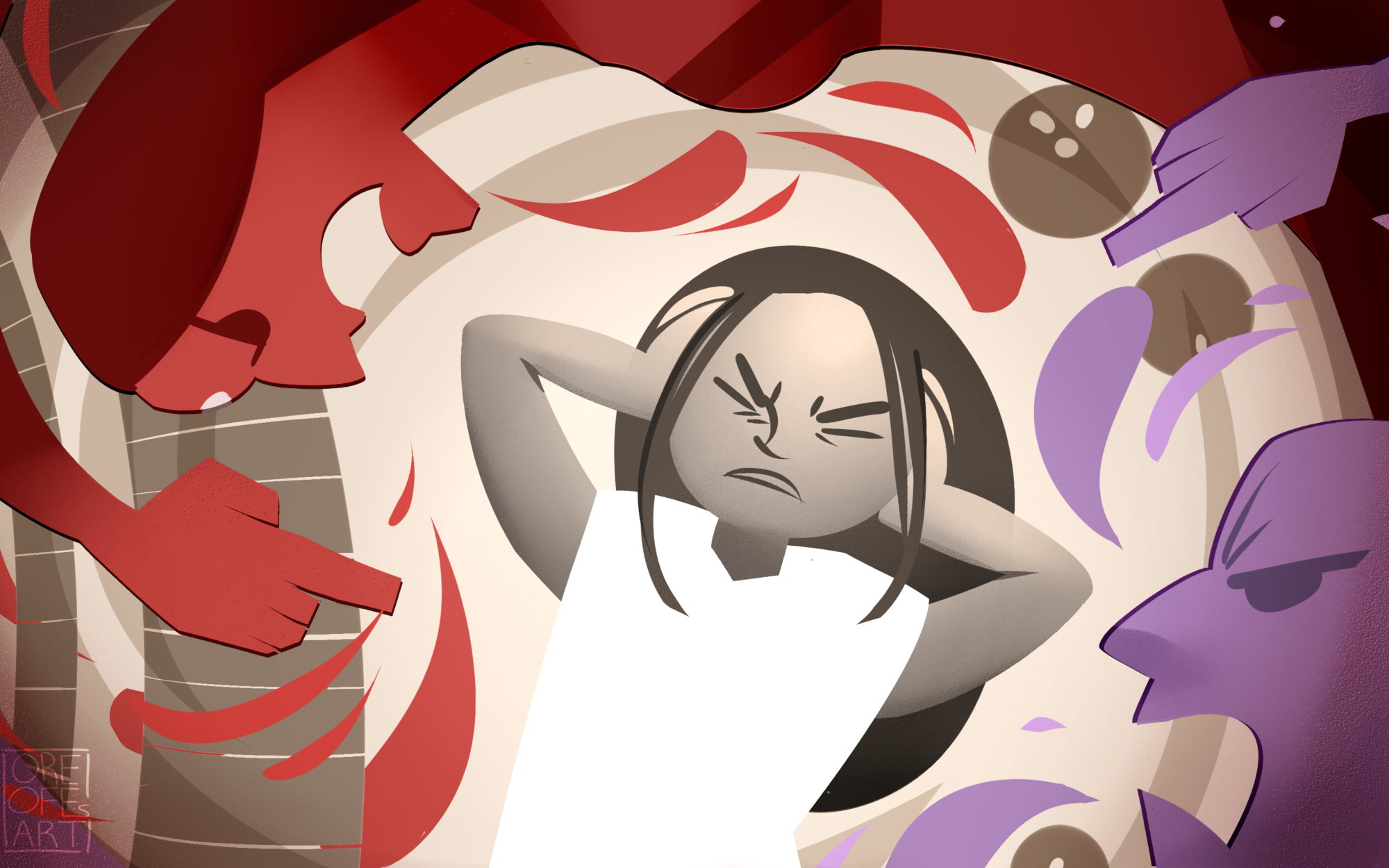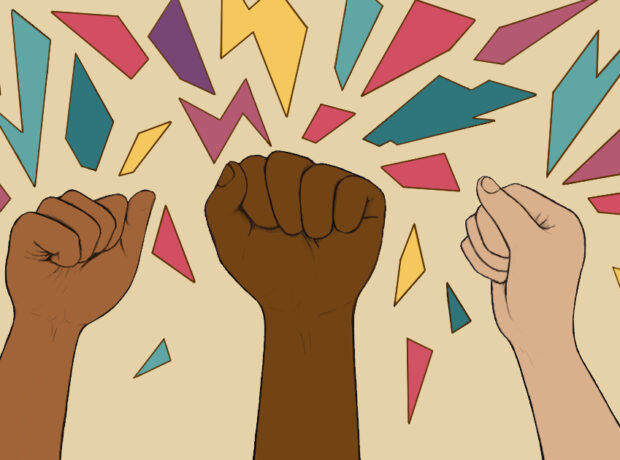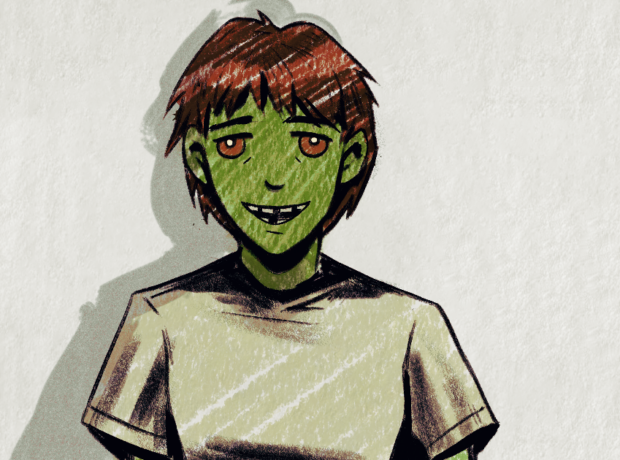In this story, a second-generation Nepali woman born in Britain, reflects upon her experience of an ethno-cultural identity crisis. She works through issues of deep-rooted sexism and colourism in her mission to embrace both her Nepali and British roots.
“Are you a coconut?” My Buba interrupted me. I tilted my head.
“A what?” I replied.
“A coconut.” He paused, looking at my confused face. “A person who is white inside and brown on the outside.”
As a second-generation South Asian woman, I often felt disconnected and confused about my identity. This was largely due to my dual-cultured life. A Nepali girl, birthed on British soil. I was trying to find a balance between my culture and Western society, while growing up into a young woman and wondering who I really was.
A CHILDHOOD OF…
EMBARRASSMENT
My Buba (pronounced Bu-ah, meaning, father) used to be a Gurkha. Gurkhas are Nepali soldiers recruited by the British Army. Their motto: “Better to die than live a coward”. Buba is a hardworking, disciplined man who encapsulates the conception of masculinity with ease. Extremely temperamental. As time has gone by, I’ve realised he also owns a soft, naïve heart, taking care of people silently without expecting anything in return.
In contrast, my Muma (pronounced Mu-ah) is a fiery and proud woman. She is very short and appears almost innocuous. It is, however, a façade. From her tiny frame, fury erupts, bubbling, hot and vicious. All the frustration kept within her is expelled in one blistering explosion. On her dormant days, she is warm to hold and be held by.
These are my parents. They moved from rural Nepal to the UK in the hope of providing a better life for their children. I have learnt both anger and love from them.
My Muma cannot speak fluent English. When I was younger, I wanted her to be able to talk English properly, like the other mothers. I was tired of her stuttering, her accent and her “ers” and “ums”.
This memory makes my stomach turn, to this day. Why would I cringe whenever she tried to speak? Why was I so ashamed?
I realise now that I had internalised believing that English and intelligence were intrinsically woven. I had been ashamed about her identity and her roots. My own roots.
I spoke both English and Nepali, but I spoke primarily English in the house. So did my brother. How must my Muma have felt not being able to hold a conversation with her children because they preferred a language she did not speak?
I wish I had been more understanding back then. When she speaks now, with her proud, broken English, I do not shrink away. I listen.
Outside of the safety of our house, I grew more and more embarrassed to embrace my culture. Our traditional clothes were loud in colour, a palette of tangerines, papayas, fuchsias, jade and deep purples. Exotic.
The gold jewellery and vivid bangles on my wrists felt heavy to me. They caught too much attention.
I remember on Diwali, when I was six, I put on a turquoise lengha, a traditional three-piece garment, for school. I was a little bundle of excitement.
My hair was braided with silk, my palms adorned with delicate mehndi (henna) designs done by my Muma. I could not wait to show it all off.
When I arrived, the white girls in my class teased me incessantly for the stains on my hands and the ‘weird’ outfit I was wearing. I felt like a freak. I was too exotic.
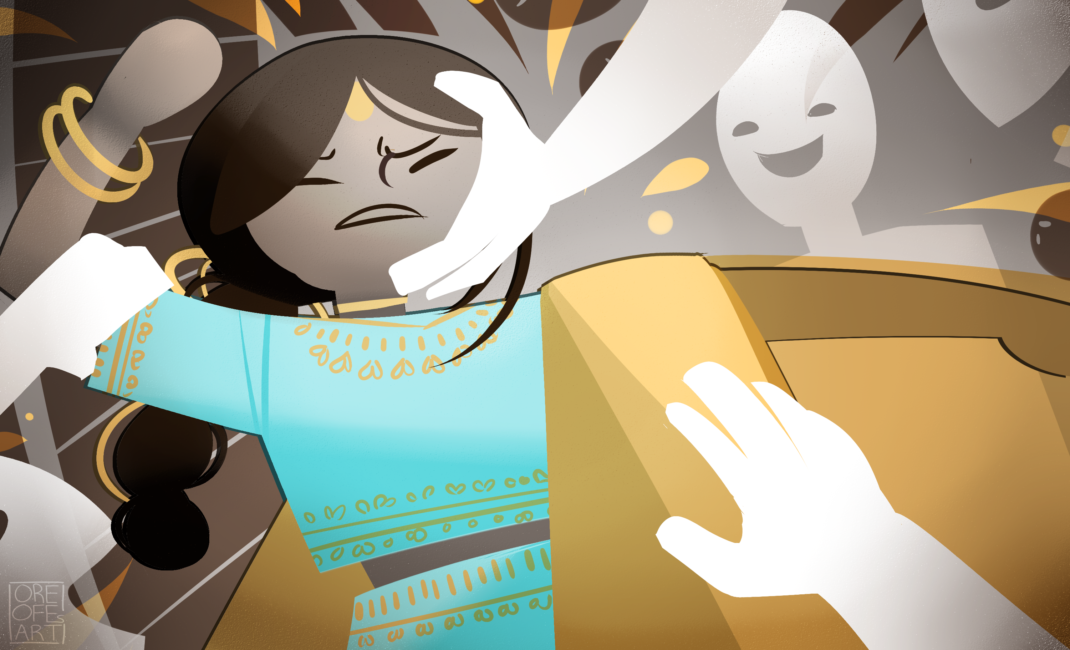
I cried when I got home. My Muma and Buba tried in vain to tell me to be proud of my culture but I didn’t listen. I wanted to be accepted.
Read More: The Maid of Honour Violence
SUBMISSION
Growing up in a Nepali household, there was a dichotomy between the outside world and my life inside our home.
Boundaries were established in the house that constricted me but did not affect my brother. I was taught to wash dishes and carry out religious duties. My brother played football in the garden.
Whilst my Muma closed her eyes and prayed to the Hindu gods and goddesses next to me, I longingly peered out of the window. My brother would be laughing as he played. It was as if I was a caged bird, watching another bird flying freely outside my enclosure.
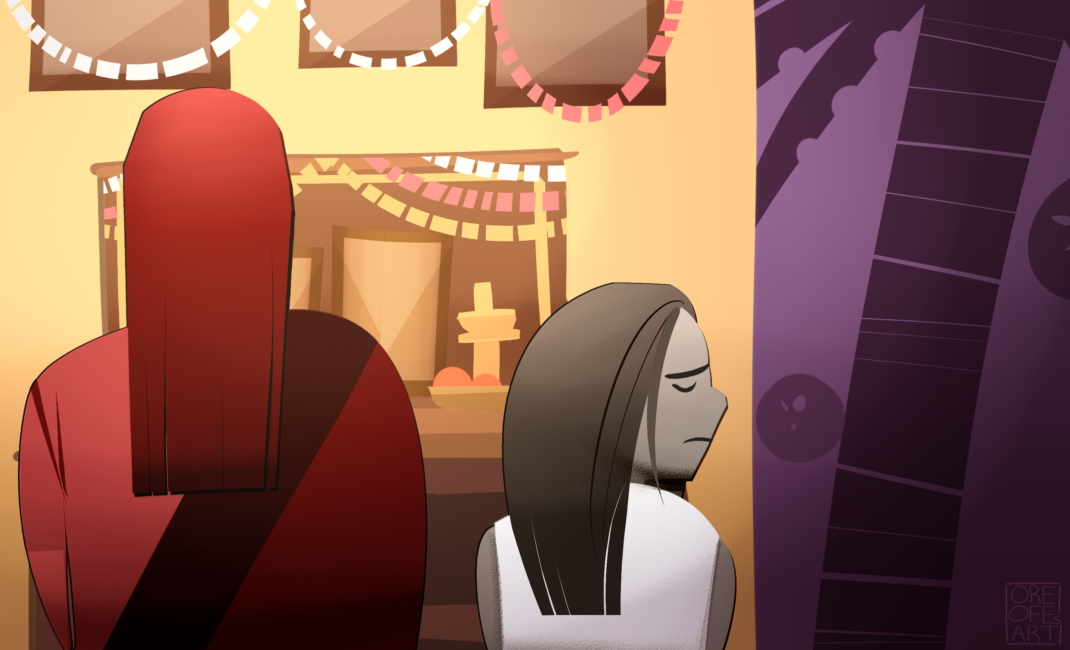
Every once in a while, my parents told me I was to marry someone who was Nepali and from my own caste. For years, I nodded. I was told to be a good girl, so that I would, in turn, be a good wife and mother. That was the highest achievement for a woman, it seemed.
When I was much older, I realised that my brother was never told to be a good father or husband. I began to understand the underlying racism, sexism and classism taught to me at such a young age.
I was to be submissive and quiet. A good girl.
FEAR AND SHAME
One winter morning, when I was about ten, I felt an ache in my stomach. A deep, sickening feeling. I went to the bathroom and saw something red on my underwear.
I was bleeding. I started wiping myself compulsively. There was more blood. I sat there for ages, bleeding and bleeding, whilst my parents were shouting downstairs at me that I was going to be late for school.
I finally mustered up the courage to call out for my Muma and I told her I was dying. She looked at my underwear and quietly left. She returned shortly with a fresh set of underwear and something square in her hand: a sanitary towel.
She taught me how to put it on and patiently waited for me to do so. She took my stained underwear and told me she would clean it. I was then ushered to school and instructed not to tell anyone, especially my brother and friends.
I was introduced to the world of menstruation without warning or education. I had to learn everything by myself. My Muma would not give me advice and I was not allowed to talk to my friends about it.
When I was on my period, I was not to touch the water or food that was going to be passed on to my family members. I felt alienated, shunned. I thought I was dirty and being punished for something sinful.
I cursed the blood that came out of me. I only learnt about periods the next year, when my school put on classes in sex education.
It was only recently that my Muma realised how harmful this treatment had been. She apologised and confessed her reasons. I listened.
In Nepal, there is a deep-rooted shame attached to menstruation. This is because of an ancient tradition, Chhaupadi, practised throughout the country.
Chhaupadi involves banishing menstruating girls and women to huts and sheds made out of mud and dirt for the duration of their period. My own mother was a victim of Chhaupadi.
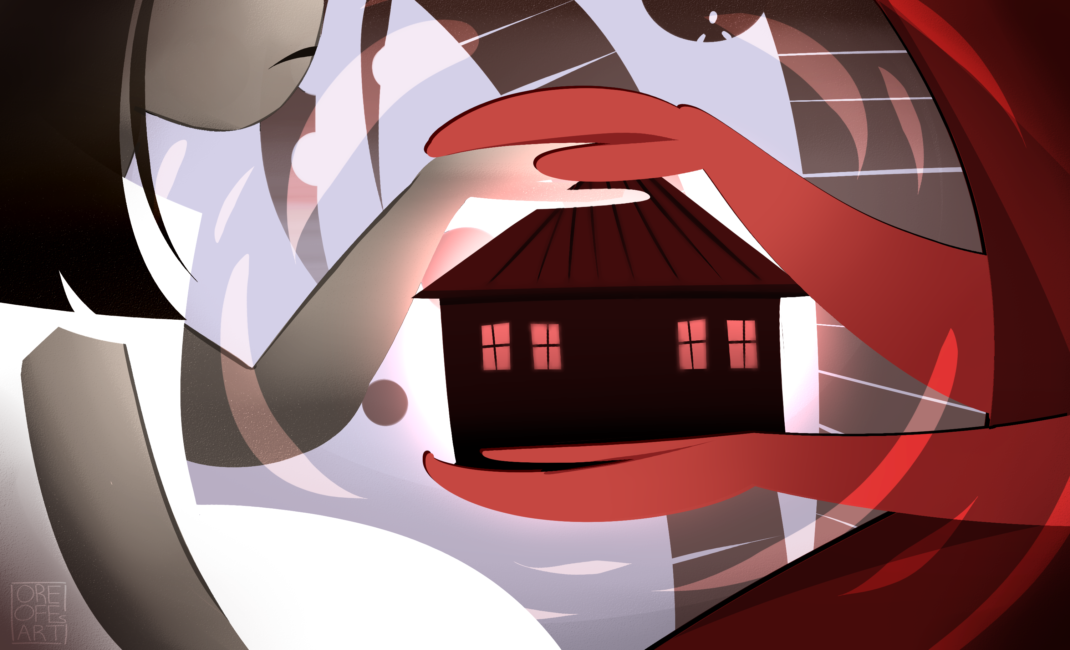
The reason that it had been forbidden for me to touch the water and food was due to the belief that girls on their periods bring their family bad luck or ill health. I still wonder how a natural bodily function, a process that helps women give birth, resulted in such a discriminatory practice.
I imagine my Muma when she was young, inside a dark, cold hut, squatting in agony, bleeding all alone. That image makes me more nauseous than any period ever has.
A WOMANHOOD OF…
EMPOWERMENT
As time passed, I started to deviate from the ideals of my culture. I became loud and more confident. I became open about my sexuality and about the issues in the South Asian community. I became less like the good girl my parents wanted me to be and more interested in empowerment and equality.
I started to argue a lot with my parents. To become confrontational. They did not like it. At all. There was a period of time when everything that came out of my parents’ mouths and my own lips was vicious.
I argued about how unfair it was that my parents kept delegating chores to me and not to my brother. I told them how unfair it was that they kept reminding me not to go out under the sun in the fear of getting darker, “uglier” skin.
I told them how this colourism (Prejudice or discrimination against individuals with a darker skin tone. For South Asians, it stems from both the Ancient Hindu caste system and European colonialism.) affects South Asians and promotes anti-blackness in our community. I told them how disgusting it was that they expected me to marry someone Nepali, Hindu and of my own caste. I was punished, physically, for speaking out.
Read More: ‘A Rapist in Your Path’: A feminist anthem springing from Chile and spreading worldwide
ANGER AND CONFUSION
I couldn’t believe that my parents, who I had worshipped more than the gods and goddesses in our mandir (temple/shrine for deities), were so prejudiced. Sexist. Racist. Colourist. Classist. I kept calling them out on these issues and I can never forget how my Buba responded:
“Are you a coconut?”
This one question highlights the identity struggle I have been battling with ever since I was a child. Was I white because I didn’t follow tradition? Was I not brown enough? Was I ashamed of my own culture? What was I?
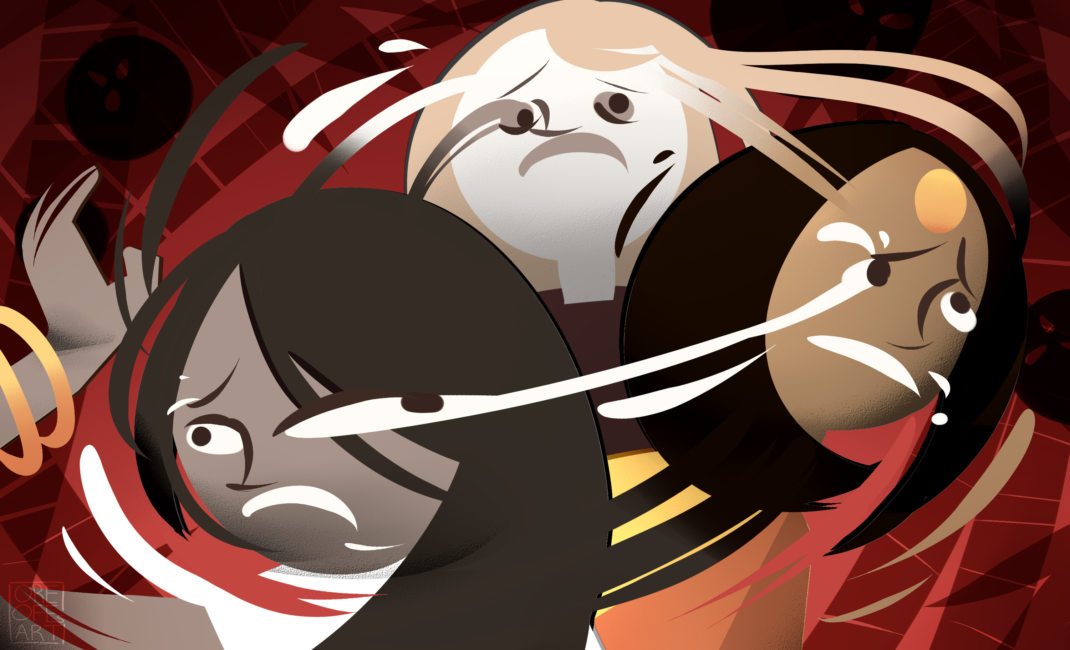
I didn’t know how to answer Buba then. I felt guilty. I didn’t know which side I was on.
Even though I did not agree with some of the traditional customs and boundaries placed upon me by my culture, I still loved my roots. I felt blessed growing up with my South Asian parents no matter how absurd their thinking seemed at times. I was still proud of my culture.
I remember the rage I felt when girls in my year would wear mehndi on their palms and bindis to festivals. Rage because it wasn’t the Nepali or South Asian girls who were wearing them. It was the white girls. I felt my blood rise. I could not believe the hypocrisy.
Ever since I was six, their taunts had made me too ashamed to show off the beauty of my culture. Yet here they were, drawing mehndi on their hands. While my culture was too exotic, too strange when adorned by people like me, it was deemed cool and trendy on white people.
I felt insulted. I shouted at them. Most of them ignored my hurt.
Coconut. White-washed. When was I going to fit in? When would I feel like I belong? I was too brown for Western society, yet my beliefs clashed with some of the traditional customs of the South Asian community. Was I really a coconut?
It took me a long time to discover some answers.
LOVE
At 21, I have finally realised that there is nothing wrong with embracing my family’s Nepali culture and also the culture of the country where I have lived my entire life. Intertwining both sides of my upbringing and education cultivates my identity. I do not need to feel ashamed.
I can hold on to what I have learnt from my education without feeling as if I have neglected my roots.
As time has passed, my own parents have realised their faults and the faults in the South Asian community. Their mindset has changed and they have apologised. Slowly things are becoming better. This change was created by me. By speaking out.
My parents are still adamant that I will marry someone Nepali and carry out “tradition”, but we shall see. I will choose what I will do in my future. Not them. Because deciding what I want is not being a coconut. I am not and have never been a coconut.
A term like “coconut” undermines my personal choices as an individual. It erases my brownness. My own Buba using the insult encapsulates his traditional masculinity overlooking all the issues I have dealt with as a brown woman.
I do not need to prove to anyone that I am South Asian. Speaking out against the unrealistic and inherently wrong ideals of my culture does not make me any less Nepali.
After all my confusion and self-doubt, when I choose what I like about my culture, the values I admire in my parents and the vital lessons I have taken from my studies in the UK, it has moulded me into a strong, educated and loud South Asian woman. All these different parts of me make up me.
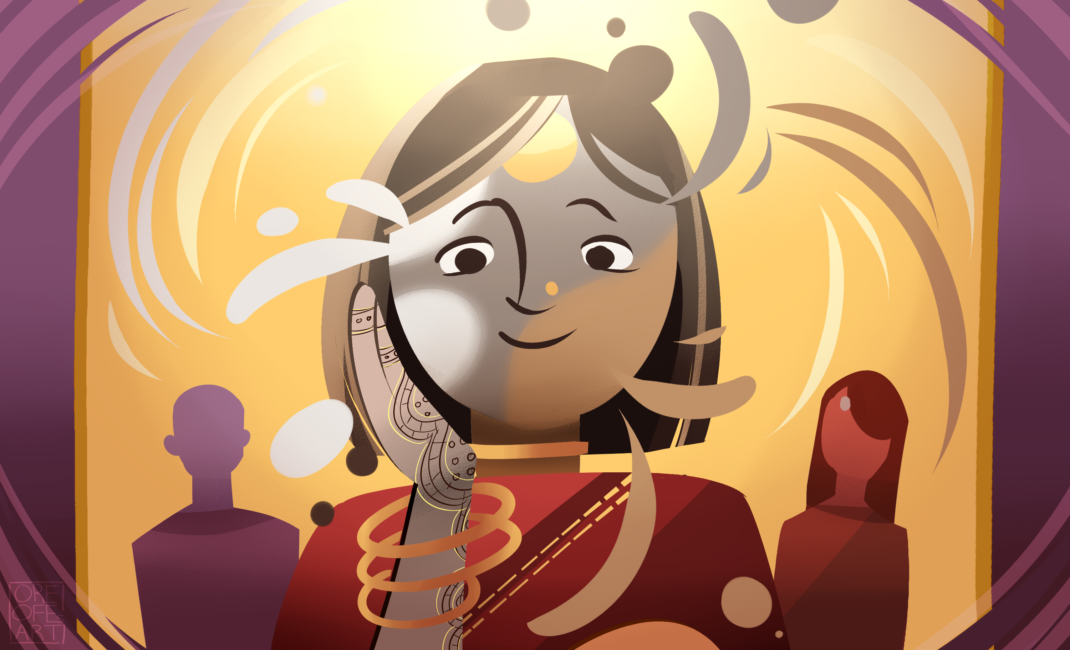
To be a South Asian woman living in Western society is to live a life of identity struggle and conflict, but it is a painfully beautiful battle. I have come to love my uniqueness. To love myself.
I will not let anyone invalidate me, my experiences, my actions or feelings. I will not invalidate others. I want to be myself and I want to be free to live unapologetically.
I owe that to myself after all these years.
All images by Oreofe Morakinyo.
Read More:
